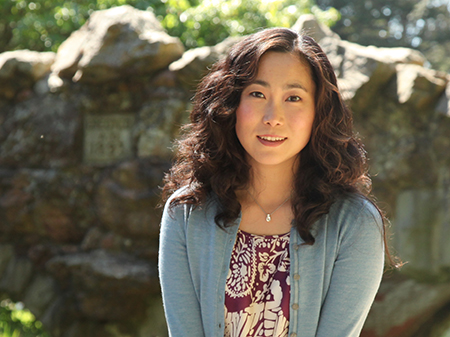Ostrow researcher earns accolades for cell fate studies

Posted
01 Mar 17
Jian Xu investigates the way that cells perish or thrive — and it may lead to new ways to fight cancer and heal damaged hearts.
Basic science can often be far from basic — especially for Jian Xu, who believes cells are kind of like people.
“In simple terms, we look at how cells determine their own fate,” said Xu, an assistant professor at the Herman Ostrow School of Dentistry of USC. “If we look at people running around, everyone chooses their own career. It’s the same thing with cells.”
Just like people, those cells maybe become an engineer or a scientist — and sometimes they have a chance to make a change mid-career. Xu’s field — cell fate determination — tries to understand how a particular cell develops into a final cell type.
Xu’s research has been gaining wide recognition recently. She received a 2017 STOP CANCER Research Career Development Award for $150,000 over three years. She also received the 2016 Audrey E. Streedain Regenerative Medicine Initiative Award along with cardiac surgeon-scientist Ram Kumar Subramanyan of the Keck School of Medicine of USC.
One of Xu’s projects looks at ways that could repair damaged hearts. Damage occurs when clogged arteries block blood flow to the heart, starving it of oxygen and injuring and scarring its muscle. This can eventually lead to heart failure.
Xu is studying fibroblast cells in the heart — the cells that glue the muscles together and give a base for muscles to attach. “When someone has a heart attack, these glue cells can change and make different decisions,” she said. “They can either make too much glue and make the heart stiff, or they can become vessel cells which improve blood flow and healing.”
Xu’s research group is studying a particular genetic pathway — called p53 — that can instruct the cells to choose blood vessel instead of glue. And Subramanyan and Xu are testing an inhibitor developed by Dr. Jian Jin at Icahn School of Medicine at Mt. Sinai to coax the cells to grow more blood vessels. “We are very excited about our progress because that can be therapeutically advantageous,” Xu said.
The other project examines similar cell fate decisions, but in cancer cells.
Xu is researching breast cancer cells and gut cancer cells to understand the exact mechanisms of the p53 pathway and how it can be used to patients’ advantage. “Some mutations make the pathway stronger in cancers, and some make it pointless,” Xu said. “So our work may tie into specific patients depending on what mutation they have.” Eventually, understanding the details of the pathway could lead to novel therapeutics to stop tumors from growing, she added.
In the future, Xu wants to understand the basic ways that populations of cells make choices about their fate. Is it because of where places the cells originate, or environmental conditions?
Again, she compared them to humans: “As people we are also different because of our environment during the time we are in a critical period of development,” she said. “I want to really understand how cell fate decision is influenced, how cells become themselves.”